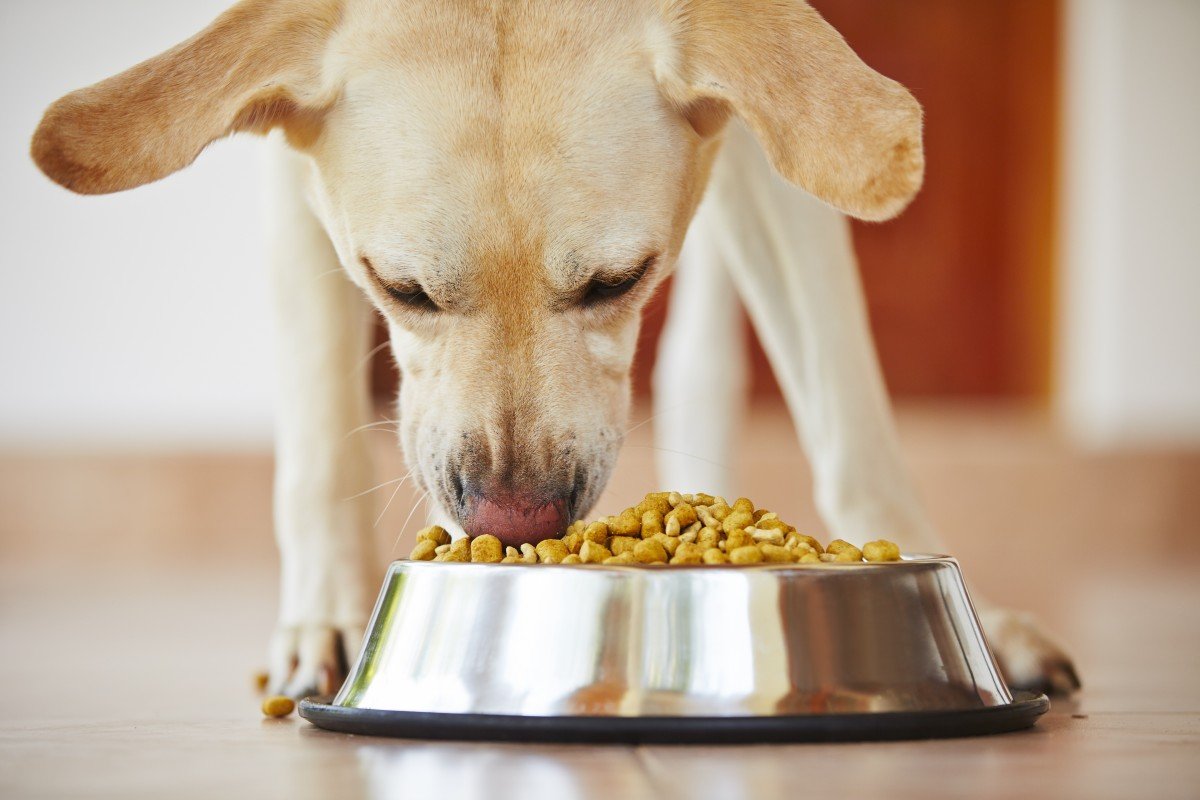Just about everyone who shares their life with a dog has experienced that sinking feeling when they realize Rover isn’t eating the way he used to. It may not mean anything is seriously awry with your dog’s health, but appetite is a barometer that can indicate how he or she is feeling.
It’s important to be intimately acquainted with your dog’s eating habits, so that you are aware of any changes that might indicate something’s up. Then you’ll have a head start in identifying any issues, small or more meaningful, that have lead to disruptions in your dog’s appetite.
Eating Habits
Not every dog has a voracious appetite. Many can be picky eaters, as small dogs tend to be. Dogs who don’t have to compete for their food, or who are fed on demand — free choice feeding — seem to be confident the food will still be there if they don’t empty the bowl all at once.
Some dogs gobble their food, especially when they’re young and used to competition from litter mates. The enthusiasm might abate as they mature, or the memory of food scarcity might stay with them.
Your dog might have idiosyncratic methods of eating, too — taking food out of the bowl and placing it on the floor to eat, or shoving the bowl across the floor as they eat, perhaps. The first sign of a change might be the absence of the endearing habits that are part of the mealtime ritual.
Eating Too Fast
Eating with gusto might be your dog’s default mode, but since eating too fast — and maybe too much — food can lead to numerous health and behavioral issues, the habit should be checked with a few simple techniques.
When Rover is usually more sedate at mealtime and develops a sense of urgency, it’s time to investigate the causes. A change in the environment might account for the shift; it’s also possible that the food isn’t meeting your dog’s nutritional needs and leaves him feeling hungry.
There could also be an underlying medical condition — parasites, for example, or a chronic disease, such as diabetes.
Loss of Appetite
Your dog may normally be a light or picky eater and it’s not out of the ordinary for him to miss a meal or two. If he’s usually an avid eater, it’s easier to notice a sudden loss of appetite. It could be temporary, but a dog that’s not eating should be monitored. If he’s also lethargic, that could indicate an infection or disease may be causing distress.
Try to interest your dog in food again by warming it up or softening it with water to make it easier to digest. Sometimes feeding by hand can help stimulate a dog’s appetite, when he’s lost interest in food.
If he hasn’t eaten for 24 to 48 hours, it’s time to take him to his veterinarian, where he could be fed intravenously or given appetite-boosting treatments. Most of all, the underlying cause of loss of appetite needs to be identified.
A change in your dog’s eating habits might be traced to flea infestation and illnesses related to fleas, such as tapeworms and flea-bite anemia. Integrate flea prevention into your dog care program to help keep him healthy and happy.
Nexgard flea and tick is an easy treatment for your dog — and the only chewable product of its kind approved by the FDA — that helps prevent and control flea and tick infestations, keeping the pests at bay for a month at a time.
